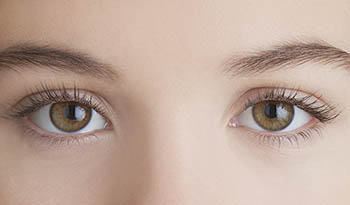視覺探索
免責聲明:本部落格不提供診斷⋯

Five key nutrients for cataract and macular degeneration
Nutrition is a key factor in the prevention and treatment of cataracts and macular degeneration. A diet rich in fruits and vegetables and targeted supplements can reduce the risk of cataracts and macular degeneration.
Lutein and Zeaxanthin
Lutein and Zeaxanthin : Studies have shown that supplementing with lutein and zeaxanthin not only helps prevent macular degeneration, but also improves visual function in patients with macular degeneration. Especially when compared with the placebo group, patients with macular degeneration supplemented with 10-15 mg of lutein daily can improve their glare visual recovery, visual contrast sensitivity, and visual sensitivity.
Lutein is also an important substance for preventing cataracts and improving the visual function of cataract patients. Like the macula, human lenses are also rich in lutein and zeaxanthin. In fact, lutein and zeaxanthin are the only known carotenoids in the human lens. Three large studies have shown a negative correlation between lutein intake and cataract surgery.
Flavonoid-rich extract
Flavonoid-rich extracts: Extracts from blueberries , bilberries , pine bark, and grape seeds are rich in flavonoids and have multiple benefits for eye health. In addition to having good antioxidant activity, these extracts can also improve blood flow in the retina and strengthen visual processes, especially for people with poor night vision. Ingesting 150-300mg of any of these flavonoid-rich extracts daily is good for eye health.
Nutritional antioxidants
Beta-carotene , vitamin C , vitamin E , zinc , copper , selenium and other nutritional antioxidants are particularly important for eye health. Studies conducted by the research group of age-related eye diseases have shown that combined intake of multiple nutritional antioxidants is superior to ingestion of a single nutritional antioxidant alone. However, even simple supplements such as vitamin C or zinc can have a huge impact. In one study, women who took vitamin C for more than 10 years were only 77% less likely to develop cataracts than women who did not take vitamins.
Zinc plays an essential role in the metabolism and visual imaging of the retina. A two-year trial involving 151 participants showed a significant reduction in vision loss in the zinc-infused test group compared to the placebo group.
Coenzyme Q10 and Acetyl L-Carnitine
CoQ10 and Acetyl L-Carnitine : A double-blind study found that intake of 200 mg of Acetyl L-Carnitine and omega-3 fatty acids (460 mg EPA (dodecanoic acid), 320 mg DHA (docosahexaenoic acid)) Coenzyme Q10 can improve macular changes in the visual imaging process and in the early stages of macular degeneration. The combined intake of these substances in 48 study subjects terminated the progression of disease in 47 subjects.
fish oil
Fish oil : Atherosclerosis, also known as arteriosclerosis, is strongly linked to eye health. Therefore, similar to its role in atherosclerosis, omega-3 fatty acids in fish oil play an important role in preventing macular degeneration and other eye diseases. The recommended dosage is 1000 mg of EPA (dodecanoic acid) and DHA (docosahexaenoic acid).
Eye nutrients
Foods rich in carotene lycopene, zeaxanthin and lutein include sweet peppers, carrots, kale, papaya, spinach, sweet potatoes and tomatoes .

 作者 邁克爾·默里(Michael Murray)博士,自然療法醫師
作者 邁克爾·默里(Michael Murray)博士,自然療法醫師 


